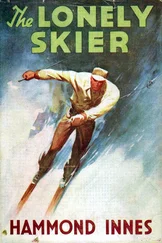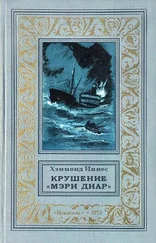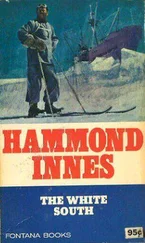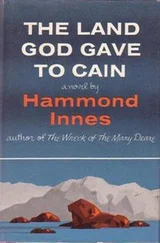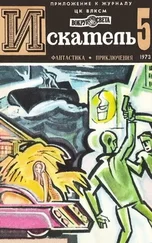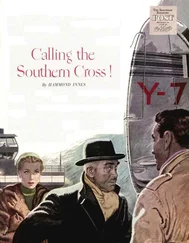Хэммонд Иннес - Nothing to Lose [= Campbell’s Kingdom]
Здесь есть возможность читать онлайн «Хэммонд Иннес - Nothing to Lose [= Campbell’s Kingdom]» весь текст электронной книги совершенно бесплатно (целиком полную версию без сокращений). В некоторых случаях можно слушать аудио, скачать через торрент в формате fb2 и присутствует краткое содержание. Город: Philadelphia, Год выпуска: 1952, Издательство: The Curtis Publishing, Жанр: Триллер, Прочие приключения, на английском языке. Описание произведения, (предисловие) а так же отзывы посетителей доступны на портале библиотеки ЛибКат.
- Название:Nothing to Lose [= Campbell’s Kingdom]
- Автор:
- Издательство:The Curtis Publishing
- Жанр:
- Год:1952
- Город:Philadelphia
- ISBN:нет данных
- Рейтинг книги:3 / 5. Голосов: 1
-
Избранное:Добавить в избранное
- Отзывы:
-
Ваша оценка:
- 60
- 1
- 2
- 3
- 4
- 5
Nothing to Lose [= Campbell’s Kingdom]: краткое содержание, описание и аннотация
Предлагаем к чтению аннотацию, описание, краткое содержание или предисловие (зависит от того, что написал сам автор книги «Nothing to Lose [= Campbell’s Kingdom]»). Если вы не нашли необходимую информацию о книге — напишите в комментариях, мы постараемся отыскать её.
Nothing to Lose [= Campbell’s Kingdom] — читать онлайн бесплатно полную книгу (весь текст) целиком
Ниже представлен текст книги, разбитый по страницам. Система сохранения места последней прочитанной страницы, позволяет с удобством читать онлайн бесплатно книгу «Nothing to Lose [= Campbell’s Kingdom]», без необходимости каждый раз заново искать на чём Вы остановились. Поставьте закладку, и сможете в любой момент перейти на страницу, на которой закончили чтение.
Интервал:
Закладка:
“I have never shown anybody this,” she said.
“Why have you shown me?” I asked.
She looked up at me. She had a brooch in her hand. If was gold, studded with amethysts, and the amethysts matched the color of her eyes and both gleamed as brightly in the candlelight. “This was my favorite.”
“Why have you shown me all this?” I asked again.
She sighed and put the brooch back. Then she closed the lid of the box and signaled me to replace the false bottom. She operated the hidden catch fixing it in position and then returned the clothes to the trunk. When the lid was finally down and locked, she pulled herself to her feet. She was crying gently and dabbing at her eyes with a lace handkerchief. “That is all I have left of my father,” she said, her voice trembling slightly. “He made it in the Come Lucky mine, and when he died, that was my share. There was more, of course, but we have had to live.”
“You mean that was how he left you his money?”
She nodded. “Yes. He did not believe in banks and modern innovations like that. He liked to see what he had made. My sister” — she sighed and blew her nose delicately — “my sister thought she knew better. She was engaged to a man in Vancouver and he invested it for her. She lost it all. The stocks were no good.”
“And her fiancé?”
She gave a little shrug. “The man was no good either.”
“Why have you told me this? Why have you shown me where you keep your money?”
She stared at me for a moment and then she gave me a beautiful little smile. “Because I like you,” she said. “I had a — friend once. He was rather like you. An Englishman. But he was already married.” She got to her feet. “I must go now. I do not want my sister to know that I have done anything so naughty as visiting a man in his bedroom.” Her eyes twinkled up at me. And then she touched my arm. “I am an old lady now. There has been very little in my life. You remember the parable of the talents? Now that I am old I see that I have made too little use of money my father gave me. Jean told us what had happened up in the Kingdom. I would like you to know that you do not have to worry about money. You have only to ask—”
“I couldn’t possibly—” I began, but she silenced me.
“Don’t be silly. It is no good to me and I would like to help.” She hesitated and then smiled. “Stuart Campbell was the friend I spoke about. Now perhaps you understand. Good night.”
That visit from Sarah Garret I treasure as one of the most beautiful memories I have.
A few hours later I left. The house was silent and as I walked down through the shacks of Come Lucky the sky was just beginning to pale over Solomon’s Judgment. I walked along the lakeshore and waited for a truck coming down from Slide Camp. It took me as far as Hydraulic and from there I got a timber wagon down to 150-Mile House. On my own, I found a mood of depression creeping over me.
But when Johnny arrived everything was different. He came with a couple of Americans. They were on holiday and they regarded the whole thing as a game, part of the fun of being in the Rockies a long way from their offices in Chicago. As soon as they knew the situation they got on the phone to a whole list of farmers along the valley. The farms were widely dispersed and the better part of a week had passed before we had a total of twenty-six animals with gear corralled at a homestead a few miles west of Beaver Dam Lake.
On the fifteenth of July we moved them up to the entrance to Thunder Creek and the following morning, as arranged, we rendezvoused with the vehicle trucking in our containers. It took us over twenty-four hours to pack that first five hundred gallons up to the Kingdom.
The atmosphere when we came down into the Kingdom was one of tense excitement. Just before we arrived, an Imperial Oil scout had ridden in. With this recognition from the outside world and with the arrival of the fuel, enthusiasm was unbounded.
Two days later the four of us brought a second five hundred gallons up. By the time we packed in the second load of fuel they were past the five thousand mark and going strong.
I remember Johnny standing in front of the rig the day he and his two Americans took the pack animals down, “I’d sure like to stay on up here, Bruce,” he said. He, too, had been caught by the mood of excitement. Boy had arrived that morning, and with him a reporter from the Calgary Tribune. Five thousand five hundred feet was the level at which they expected to reach the anticline, and hanging over me all the time was the knowledge that it wasn’t oil we were going to strike there, but the sill of igneous rock that had stopped Campbell No. 1, I couldn’t tell anybody this, I just had to brace myself to combat the sense of defeat when it came.
As the days went by, the suspense became almost unbearable. We were drilling through quartzite and making slower progress than we had hoped. Some of the drilling crew were in touch with men working on the dam and from them they learned that the completion date was fixed for August twentieth. Worse still, the Larsen Company planned to begin flooding immediately, in order to build up a sufficient head of water to run a pilot plant during the winter.
At the beginning of August we were approaching five thousand five hundred and Garry was getting restive. So were his crew. Just after nine on the morning of August fifth they pulled pipe for what they all hoped might be the last time. The depth was five thousand four hundred and ninety feet. They were all down on the rig, waiting. They waited there all morning, watching the grief stem inching down through the turntable, and I stood there with them, feeling sick with apprehension. They pulled pipe again at two-fifteen. Another sixty-foot length of pipe was run on, and down went the drill again, section by section. The depth was now five thousand five hundred and fifty feet.
At length I could stand the suspense no longer. I drew Garry to one side saying I wanted to talk to him alone. He walked back with me to the ranch house. “Suppose we don’t strike the anticline exactly where we expect to,” I said. “What depth are you willing to drill to?”
“I don’t know,” he said. “The boys are getting restive.”
“Will you give it a margin of two thousand feet?”
“Two thousand!” He stared at me as though I were crazy. “That’s nearly a fortnight’s drilling. It’d take us right up to the date of completion of the dam. Anyway, we haven’t the fuel.”
“I can pack some more up.”
He looked at me, his eyes narrowed. “There’s something on your mind. What is it?”
“I just want to know the margin of error you’re willing to give it.”
He hesitated and then said, “All right. I’ll tell you. I’ll drill till we’ve exhausted the fuel that’s already up here. That’s four days more. That’ll take us over six thousand.”
“You’ve got to give a bigger margin than that,” I said.
He caught hold of my arm then. “See here, Bruce. The boys wouldn’t stand for it. You don’t seem to realize that we’ve all had about as much as we can take. I’ve lost two trucks; neither the rig nor any of the boys are earning their keep. If we don’t bring in a well—”
He stopped then, for the door had burst open and Cliff Lindy, the driller on shift, came in. There was a wild look in his eyes.
“We’re in new country,” he said.
“The anticline?”
But I knew it wasn’t the anticline. His face, his whole manner told me that this was the moment I had dreaded. They had reached the sill.
“We’re down to rock as hard as granite and we’ve worn a bit out in an hour drilling two feet.” He caught hold of Garry’s arm. “For Pete’s sake,” he said, “let’s get out of here before we’re all of us broke!”
Читать дальшеИнтервал:
Закладка:
Похожие книги на «Nothing to Lose [= Campbell’s Kingdom]»
Представляем Вашему вниманию похожие книги на «Nothing to Lose [= Campbell’s Kingdom]» списком для выбора. Мы отобрали схожую по названию и смыслу литературу в надежде предоставить читателям больше вариантов отыскать новые, интересные, ещё непрочитанные произведения.
Обсуждение, отзывы о книге «Nothing to Lose [= Campbell’s Kingdom]» и просто собственные мнения читателей. Оставьте ваши комментарии, напишите, что Вы думаете о произведении, его смысле или главных героях. Укажите что конкретно понравилось, а что нет, и почему Вы так считаете.

